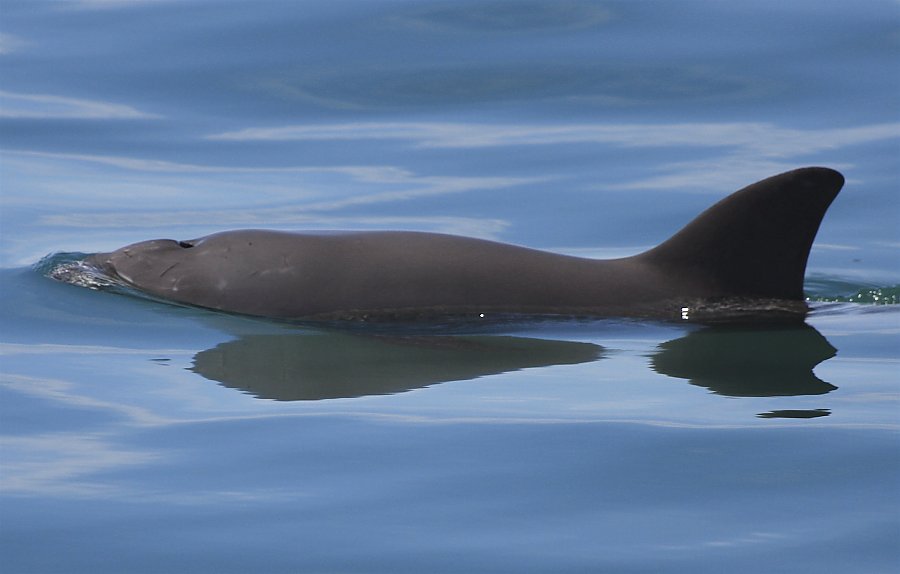5 Things to Know About the Vaquita

In Focus
Tuesday, October 04, 2016
Vaquita porpoises, at 5 feet long, are the smallest-known species of whale. They inhabit a small region in the northern Gulf of California and are at severe risk of going extinct.
The Aquarium of the Pacific has jumped into action to amplify conservation efforts for key species like the vaquita through a program called AZA SAFE (Saving Animals From Extinction). Dave Bader, our director of education, is helping to lead these efforts. Today he is sharing five important things to know about the vaquita.
- Vaquitas are almost extinct. Since the late 1990s, we have seen a 92 percent decline in vaquitas, and numbers continue to dwindle. More recent surveys show that the population has plummeted from about 100 animals to fewer than sixty. This makes them the most endangered whale in the world.

- Vaquitas are a beloved animal, and fishermen are their biggest advocates. Before it was outlawed, gillnetting was the most common way to catch shrimp in the northern Gulf of California. Unfortunately, these vertical nets would entrap the vaquita porpoises and other fish along with the shrimp. But fishermen do not want to catch vaquitas in their nets!
In fact, working with the fishermen is the only way to prevent vaquita extinction. They are working with scientists and conservationists to test and develop alternative fishing gear. These potential solutions will help save the vaquita, while also allowing the fishermen to sustain their livelihoods and provide for their families. - Vaquitas are not the first. For centuries now, land animals have gone extinct as a result of human influence, while marine extinction has remained rare. Unfortunately, this is starting to change. The Chinese Baiji River dolphin went extinct in 2008, and many more marine species including the vaquita are nearing extinction.
Right now we are at a tipping point with the living things that inhabit the World Ocean. It’s not too late to change for the better and protect marine animals! - Vaquitas may be tiny, but their message is BIG. Even though they are small, this animal and its story represent so many things. It’s a conservation effort to preserve an ecosystem, a social issue to change the habits of people and the food we eat, a local issue of working with the fishermen and communities surrounding the northern Gulf, and a global issue that stretches across many different countries and continents.

- Vaquitas need you. Yes, you! The best thing you can do is to think about where your seafood comes from and how you can purchase sustainable seafood that won’t impact important species like the vaquita. Luckily, the Aquarium has done most of the leg work for you, and you can check out suggestions on our Seafood for the Future website.
You can also become an advocate for the vaquita. Take what you’ve learned here, watch this video, read interviews with fishermen, or visit the Aquarium to learn more through some of the educational activities pictured above. Then, turn this info into a social media post tagged with #4aPorpoise and share the vaquita story with your friends and family.
Remember, all hope is not lost! Powerful things happen when people like you help to protect our oceans, raise your voice, and share that you care about what happens. If we all rally behind this tiny porpoise, then we can make a big difference to ensure that many marine animals like the vaquita will be around for generations to come.
